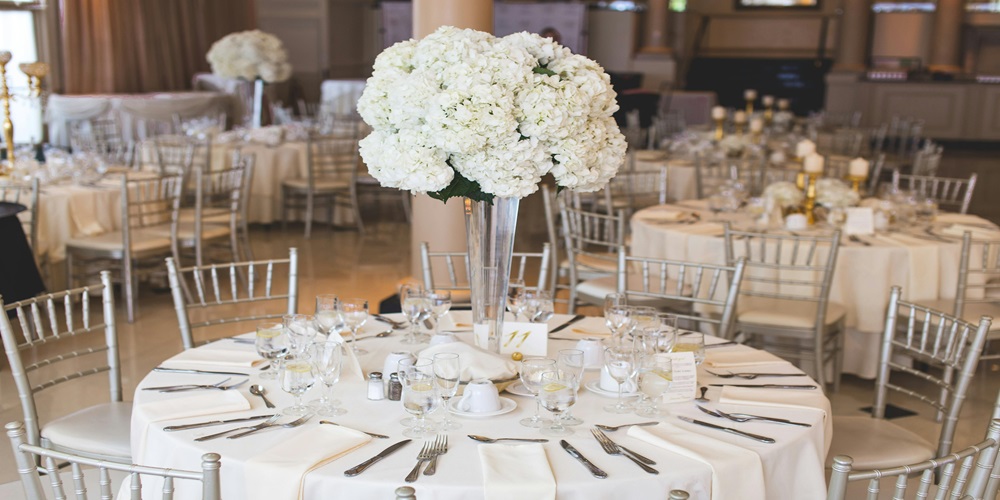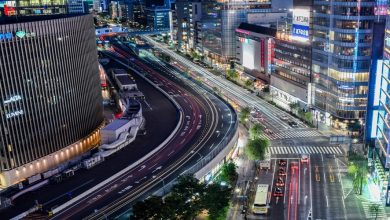Top Trends Shaping the Future of Event Planning Jobs in 2024

As we step into a new era of event planning, the industry is undergoing a remarkable transformation that promises to redefine what it means to create unforgettable experiences. In 2024, event planners are not just orchestrators; they’re innovative visionaries armed with cutting-edge technology, sustainability initiatives, and data-driven insights. Whether you’re an aspiring planner eager to make your mark or a seasoned professional looking to stay ahead of the curve, understanding these emerging trends is crucial. From immersive virtual events to eco-conscious practices reshaping venues and catering choices, let’s dive into the top trends shaping the future workforce in event planning—where creativity meets strategy and innovation paves the way for unparalleled opportunities!
Introduction to the Event Planning Industry
The world of event planning is buzzing with excitement and change. As we step into 2024, the landscape for event planning and coordination jobs is evolving at an unprecedented pace. From intimate gatherings to grand celebrations, every occasion requires skilled professionals who can bring visions to life while navigating a myriad of challenges. Whether you’re considering a career in this dynamic field or looking to adapt your existing skills, understanding the current trends will be crucial for success.
This industry has always thrived on creativity and connection, but new factors are reshaping how events are organized and executed. With technology advancing rapidly, sustainability becoming essential, and client expectations soaring higher than ever before, staying ahead of these trends isn’t just an option—it’s a necessity. Ready to discover what’s driving the future of event planning jobs? Let’s dive in!
Overview of Current Job Market for Event Planners
The job market for event planning and coordination jobs is witnessing a dynamic shift. As businesses return to in-person gatherings, demand for skilled planners is on the rise.
Organizations are seeking professionals who can blend creativity with logistical expertise. This combination ensures successful events that leave lasting impressions.
Freelance opportunities are also expanding. Many individuals prefer hiring independent planners for their unique touch and personalized service.
Moreover, specialized roles within the industry are emerging. From corporate event coordinators to wedding specialists, niches continue to develop as client needs evolve.
Competition remains fierce, particularly in urban areas where numerous talented planners vie for attention. Networking and building a strong portfolio have never been more crucial in standing out amidst this bustling landscape.
With the right skills and adaptability, those entering or advancing in this field can find promising prospects on the horizon.
Technology and Social Media Impact on Event Planning Jobs
Technology and social media are revolutionizing the event planning landscape. Event planners now leverage cutting-edge tools to enhance their workflow. From project management software to virtual reality experiences, technology streamlines operations like never before.
Social media platforms play a crucial role in promoting events. They enable planners to reach wider audiences quickly, creating buzz around upcoming gatherings. Engaging content can attract attendees and sponsors alike.
Live streaming is another game-changer. It allows event planners to extend participation beyond physical venues, catering to remote guests. This flexibility opens up new opportunities for audience engagement.
Moreover, data analytics helps professionals gain insights into attendee preferences and behaviors. Understanding these trends enables better decision-making when crafting experiences tailored to specific demographics.
As technology continues evolving, so too will the skill sets required for success in event planning jobs. Embracing these advancements is essential for staying relevant in this competitive field.
Shift towards Sustainable and Eco-Friendly Events
The shift towards sustainable and eco-friendly events is gaining momentum in the event planning industry. As awareness of environmental issues grows, clients are increasingly seeking green solutions for their gatherings.
Event planners now prioritize reducing waste, utilizing recyclable materials, and minimizing carbon footprints. This trend not only aligns with global sustainability goals but also attracts eco-conscious attendees who value responsible practices.
Creative strategies are emerging as planners incorporate local sourcing of food and decor to support community businesses while lowering transportation emissions. Digital invitations replace paper ones, further contributing to a reduced ecological impact.
Moreover, implementing energy-efficient technologies at venues enhances overall sustainability efforts. Clients appreciate innovative approaches that demonstrate commitment to the environment without sacrificing quality or experience.
Adapting to these changes requires flexibility and knowledge about sustainable options available in the market. Embracing this trend can lead to exciting opportunities for future-focused event planning professionals.
Importance of Diversity and Inclusion in the Event Industry
Diversity and inclusion have become essential pillars in the event planning industry. A diverse team brings varied perspectives, fostering creativity and innovation. Different backgrounds contribute unique ideas that can elevate events to new heights.
Clients today expect representation in their events. They want to see inclusivity reflected not just in attendees but also within the teams orchestrating these experiences. This shift requires planners who understand cultural nuances and can cater to a wide range of audiences.
Moreover, inclusive practices are key for building stronger relationships with clients and vendors alike. An environment where everyone feels valued encourages collaboration and enhances problem-solving.
Incorporating diversity isn’t merely an ethical obligation; it’s a strategic advantage that can lead to richer experiences for all involved. As the landscape evolves, embracing these values will be crucial for any event planner aiming for success in this dynamic field.
Role of Virtual Events in Future Job Opportunities
Virtual events have revolutionized the landscape of event planning and coordination jobs. With advancements in technology, these online gatherings are becoming more sophisticated and engaging.
Event planners now need to adapt to digital platforms that offer immersive experiences. Skills in managing live streaming, virtual networking, and interactive features are essential.
The flexibility of virtual events expands job opportunities beyond geographical limitations. Planners can work with clients from around the globe without relocating.
Additionally, hybrid events—combining in-person and virtual elements—are on the rise. This trend requires a unique skill set to seamlessly integrate both formats while meeting diverse audience needs.
As companies continue embracing remote solutions, expertise in virtual event management will be a sought-after qualification for future roles. Embracing this shift is crucial for aspiring professionals aiming to thrive in an evolving marketplace.
Emerging Trends in Event Design and Decorations
Event design and decorations are rapidly evolving, reflecting modern aesthetics and guest experiences. One prominent trend is the use of immersive environments. Planners are creating spaces that transport attendees into different themes or atmospheres, enhancing engagement.
Sustainable materials have also gained traction in event decor. Biodegradable options and upcycled designs not only appeal to eco-conscious clients but also add uniqueness to events.
Another exciting development is the incorporation of technology in décor elements. Interactive displays, augmented reality components, and digital art installations captivate guests while providing a fresh experience.
Color palettes are shifting too; expect bold hues mixed with earthy tones for a more inviting vibe. This fusion allows for personalization without overwhelming the senses.
Lastly, personalized touches remain essential. Tailoring decorative aspects to reflect individual client stories fosters deeper connections between hosts and their audiences.
Evolving Client Demands and Expectations for Event Planners
The landscape of event planning is shifting, driven by evolving client demands. Today’s clients seek more than just a well-organized gathering; they crave experiences that resonate on a personal level.
They expect planners to be not only organizers but also visionaries. Understanding their unique brand identity and audience becomes crucial for creating memorable events.
Moreover, transparency in budgeting and communication is paramount. Clients want to know where every dollar goes and appreciate regular updates throughout the planning process.
Clients are increasingly leaning towards personalization. They desire tailored solutions that reflect their values and objectives, whether it’s through thematic elements or innovative technology integrations.
Lastly, responsiveness has become non-negotiable. Rapid replies to inquiries can set planners apart in this competitive market, demonstrating commitment and professionalism while building trust with clients.
The Gig Economy’s Influence on Event Planning Jobs
The gig economy is changing the landscape of event planning jobs. More professionals are choosing flexible work arrangements over traditional full-time positions. This shift allows planners to take on multiple projects simultaneously, expanding their portfolios.
Freelancers and independent contractors now dominate many aspects of event coordination. They bring fresh ideas and diverse skill sets that can elevate an event’s overall experience. Businesses are increasingly tapping into this talent pool for specialized tasks like catering or audiovisual support.
This trend also fosters innovation in service delivery. Planners can experiment with different approaches without the constraints of a permanent role. As demand for unique experiences grows, so does the need for a dynamic workforce ready to adapt quickly.
Networking has become essential in this environment, as relationships often dictate job opportunities. Social media platforms play a vital role in connecting freelancers with potential clients, creating a more vibrant industry ecosystem.
Conclusion
As the event planning industry continues to evolve, it is clear that emerging technologies, changing consumer preferences, and new global trends will greatly impact job opportunities in this field. By staying up-to-date on these top trends and honing crucial skills such as adaptability and creativity, aspiring event planners can position themselves for success in 2024 and beyond. With these future-focused strategies in mind, the future of event planning jobs looks bright and promising. So if you have a passion for organizing unforgettable experiences and connecting people through events, now is the time to start preparing for an exciting career ahead!





